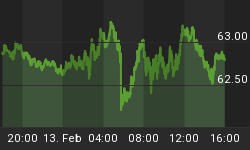Macbeth, scene 1. Enter the three witches. In unison they chant:
Double, double toil and trouble;
Fire burn, and cauldron bubble.
I know I'm being a little melodramatic here but I just couldn't resist the temptation. In any case, the sort of stuff one hears about stock markets, inflation, profits, savings, investment, capital flows, current account deficits, etc., is akin to witchcraft in the sense that that it too is nonsense. The only difference between Shakespeare's witches and most economic analysts (come to think of it, a lot of economists are not much better) is that the witches' performance not only entertains it also carries a moral message.
The recent erratic behaviour of China's stock market has served to confirm the prejudices of many as to the irrationally of stock markets. There are also those who favour markets but are hopelessly as sea as to those forces that seem to suddenly spring from nowhere to wreak economic havoc. Whenever this happens many of the more 'enlightened' tend to debate the issue in terms of market efficiency.
This is because since the 1960s the efficient-market hypothesis has held sway among a great many people. The thesis holds that markets are extremely efficient in the sense that all information about the past, the present and the future are swiftly built into share prices. One does not have to be a genius to deduce that this belief has its roots in the concept of perfect competition in which all market participants share the necessary information, resources are never misallocated, prices never distorted and adjustments are instantaneous.
Unfortunately, those who should no better do not realise that this is a thoroughly mechanistic and fallacious way of looking at the economy and explains why the theory has been unable to account for, let alone explain, market crashes. In brief, the market-efficiency theory is claiming that stock markets are perfect. If these markets had attained the degree of perfection that advocates of the market-efficiency theory claim for them then they would have ceased to be markets.
It is little realised, even among a large number of economic commentators, that markets exist because certainty does not. It is because we live in an uncertain world in which the future is always unknown (though we can usually form sound expectations of what it will be like, at least in the short run), where knowledge is widely dispersed and continuously changing and where expectations are always clashing and plans failing that the market comes into existence as a coordinating process.
Two conclusions can be immediately drawn from the market-efficiency theory: (a) it is impossible for people to consistently make profits on the market; (b) a less obvious conclusion is that prices are never falsified or distorted and thus cannot contain misleading information. As for the first conclusion, a small minority of investment advisors like Peter Lynch and Warren Buffet, for example, have out-perfomed the market over a long period. The second conclusion founders on the little known but vital fact that credit expansion distorts prices and creates malinvestments. In short, it creates dysfunctional prices.
By expanding bank credit we distort investment decision-making, we also create surplus 'investment funds' that generate speculative frenzies. Shares (which are really titles to land and capital goods) become overpriced as speculators bid up their prices. But this process works to also inflate company profits and hence inflated expectations of increasing income streams which are then embodied in share prices.
When central banks eventually intervene to curb the speculative excesses the bubble collapses. (It never seems to occur to the central banks that they are the real problem and not the speculators). That this process seems to happen on a regular basis has given rise to the "business cycle" myth. But the reality is that boom-and-bust 'cycles' only repeat themselves because central bankers refuse learn from their mistakes.
The essence of the Austrian theory of the boom-bust cycle is quite simple. Central banks expand credit which forces the interest rate down below the market clearing rate. This is the rate that equates the supply of capital with the demand for capital and, so to speak, allocates it through time. The origins of this theory go back to David Ricardo and the currency school.
The theory was weakened considerably by a failure to apply it on a microeconomic level. Because of his aggregate approach Ricardo was unable to explain why the downturn always struck the capital goods industries first. Fortunately Ludwig von Mises revived and greatly refined the theory, while also using some of Knut Wicksell's insights. If it were not for the Keynesian counter-revolution in economic thinking what has become known as the Austrian theory of the trade cycle would now, I believe, be the standard explanation.
Despite the Austrian theory's explanatory power most economists, especially in Australia, insist on looking elsewhere for an explanation of market bubbles, speculative frenzies and recessions. They completely overlook the obvious: only a sustained credit expansion can inflate share prices and fuel lengthy speculative frenzies. Unfortunately, anyone who insists on defending the Austrian approach, at least in Australia, is likely to be branded a "wingnut" or a "free market fanatic".
The market is not a mechanical system, the workings of which can be easily mapped and its motions predicted with clockwork-like precision. It is a spontaneous institution (meaning that it was not consciously designed), an astonishing coordination process consisting of a remarkable structure of feedback processes.
Despite its hardy nature, flexibility (if not sabotaged by unions or politicians) and inimitable coordinating capacity, its feedback processes will be distorted if fed false information by the actions of central banks. This is a fact that efficient-market hypothesis adherents refuse to acknowledge. It is to be regretted that they are not alone in their self imposed ignorance.
















